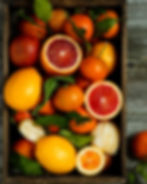Pumping iron
- isabelhoodnutrition
- Jan 31, 2022
- 3 min read
A new client mentioned to me at her first consultation recently that she wanted to change her omnivorous diet and go plant-based, but she was worried that she could not get enough iron from plants and would develop a deficiency – and this set me to thinking because there are numerous plant sources of iron and a properly constructed and tailored plant-powered diet can easily provide all the iron needed – meat is certainly not the only answer. This does not mean that going vegan is appropriate for everybody as one size does most definitely not fit all, and the important thing to remember is that a nutrient-dense diet is what we are looking for.

So let’s take a look at iron generally, and then we can go into where to obtain it in our daily diet. Iron is certainly an important mineral, which we all need in order to create two protein molecules known as haemoglobin (red blood cells) and myoglobin (muscles), both of which transport the oxygen needed to fuel your body – and without enough iron to power cells, iron deficiency anaemia can result, along with constant tiredness, shortness of breath, weakness, headaches, apathy, lack of motivation, poor resistance to cold temperatures, weakened immune system and pale skin. Furthermore, iron is essential for normal growth and development. Iron deficiency is actually considered the most frequent nutritional deficiency in the world but it is crucial to remember that too much iron can be toxic and iron overload is more common in men than in women, even though men actually require more iron than women do.
There are two different types of iron: haem iron, which is found in animal products, and non-haem iron from plants. Haem iron is more readily absorbed but it can also build up in the body, which carries risks like heart disease, diabetes and certain cancers, and it is also involved in the formation of free radicals which damage cells and age us. On the other hand, the body absorbs whatever non-haem iron it needs and it does not build up. Studies of vegetarians and vegans have shown that although they do actually have lower iron body stores and therefore need to ensure that they are consuming plenty of iron-rich plant foods, they do not generally have iron deficiencies.
It is also essential to be aware of the foods which interfere with iron absorption, such as dairy products which can often play an important role in a vegetarian diet – their calcium content reduces iron absorption. And some pulses, grains and seeds, which are good sources, contain phytates which can bind to iron and decrease its absorption so it is a good idea to soak them for an hour and discard the water. And if you are a big tea and coffee drinker, know that they both impair iron absorption.

And what helps us to absorb the iron in our food? Firstly, it is more readily available in RAW food anyway – and secondly Vitamin C helps absorption so it is wise to combine iron-rich foods with Vitamin C-rich foods, ie citrus, tomatoes, broccoli, peppers, strawberries, Brussels sprouts, potatoes, peas and cabbage.
Iron is widely distributed in foods – in animal products of course, particularly clams, oysters, mussels, sardines, liver, turkey, beef, lamb and eggs. But what of plants? The highest concentrations are found in sesame, sunflower and pumpkin seeds, pine nuts, apricots and figs, beans/chickpeas/lentils, tofu (not my favourite source!), whole grains, quinoa, parsley, broccoli, beetroot and dark green leafy vegetables.
The answer to the iron question? Eat a varied, fresh, natural, unprocessed diet rich in plant foods and you are unlikely to have a problem. And if you choose to eat fish, meat and eggs, just remember that iron can build up as the body does not have a physiological mechanism to excrete any excess.

